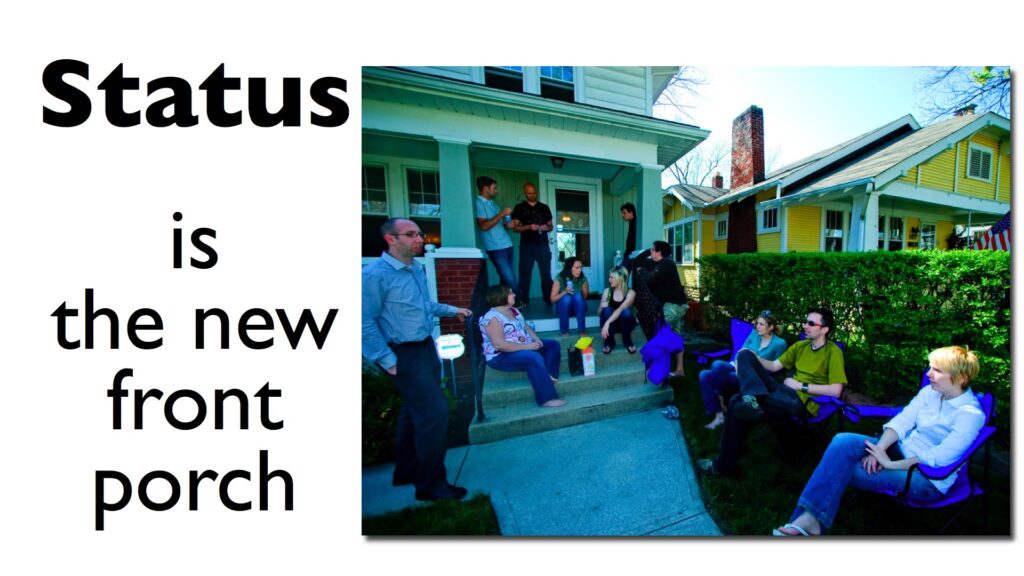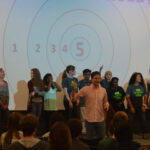At LACUSPA over the last few days, I was really enjoying the conversational and educational power of good metaphors. I think it’s something we do well at Swift Kick.
First, it was with Dance Floor Theory, comparing dance floor dynamics to engagement and apathy and service leadership. Now it is with technology.
Our whole program and training is about connecting the new changes with ideas that students, administrators, and faculty are all familiar with.
This often produces the “pop” of good education, where the cloudy confusion opens up into blue skies of understanding. It’s a really refreshing feeling when something that has been vexing suddenly clicks into place in an existing schema and becomes functional and useful in our thinking. Being able to help others in that process, especially when it audibly clicks right in the session, is one of the great joys of education.
A new one that is testing well so far is about status.
We show a random slice of the Facebook friend status friend feed (which is new to most older staff members). We talk about how random the little bits are and how consistently many update them. The administrators and staff have the normal first reaction (that many had / still have to twitter) “This is ridiculous . . . what a waste of time and energy.”
This is the classic example of judging the new from outside of it – without any empathy or understanding. (Which, to be clear, is totally normal. It’s how we hold our boundaries and our identity. I’m still holding onto my lack of empathy/experience / or understanding for Second Life. I say that I’m too busy, which is nonsense.)
So we start with this slide and let the judgment flow:

Then we talk a little research about the emotional benefits of “bridging social capital” – and make the connection:

Someone in the session (100 or so) said “oohhh” out loud. It made my day. It was a schema click.
Good metaphors have “legs”, they are useful thinking tools that clarify deeper dynamics. This one has some legs.
Front porches allowed people to see what the neighbors were doing. To be up in each others’ biznass and gossip about it. This was annoying until your house burned downed and all of that bridging social capital came to your rescue. Then you felt the community. Felt all the connections that your life’s availability had created – just by the design of the houses and proximity.
Status lets us watch the neighbors go by. It keeps us bridged. It gives us a place and feels like a community.
And when it is tested it responds like a small town that cares, with an outpouring of sentiment and offers of help.
We mourned the loss of community that came with suburban sprawl: when we traded front porches for cars and commutes, conversations over tea for frenetic soccer mom families.
Technology is giving us a way out of the trades we made previously. Maybe we have our cake and can eat some too.




